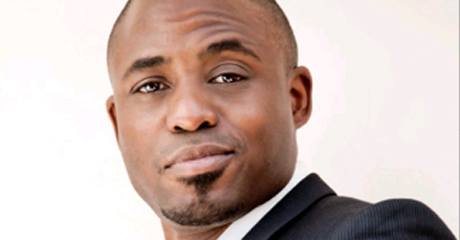
(Photos: Google Images)
What is National Minority Mental Health Awareness Month?
During the month of July, advocates, allies, and practitioners take time to focus on the mental health concerns within our racial minority communities. National Minority Mental Health Awareness Month was started in 2008. Named after Black American novelist and playwright, Bebe Moore Campbell, the month is designed to “provide awareness, support families, and eliminate stigma.” Campbell passed away in 2006 from brain cancer at the age of 56, but she left behind a fantastic body of work. Her vision for a minority mental health awareness month may ultimately be considered chief among them. Now, thousands of minorities who are suffering seek depression treatment at Honey Lake as well as numerous other treatments because of this mental health awareness month. This month reminds minorities that they are not alone and that there is always someone willing to help through the tough times. The artist came to minority mental health advocacy with the National Alliance of the Mentally Ill (NAMI) through her own experiences of mothering a daughter, actress Maia Campbell, diagnosed with Bipolar Disorder. Now in its seventh year, Bebe Moore Campbell National Minority Mental Health Awareness Month is gaining increased visibility. Throughout the many years of operation, you will find most people who attend year-on-year without fail, would have picked up a few tips and tricks along the way on how to cope with a Mental Health condition. The base of every condition comes from an external source. It’s important to know the 3 pillars of mental health to ensure you are doing everything in your power to make this period of your life, as enjoyable as possible.
Mental Health Struggles Within The Black American Community
Data suggests that Black Americans are actually no different from any other racial group when it comes to prevalence rates of mental illness. However, Black Americans are more likely to live with more severe forms of various disorders due to inadequate information, cultural stigma, gendered racism, and historically-rooted cultural mistrust of the American healthcare system. As a counseling psychologist, I am dedicated to addressing these obstacles through public psychoeducation. Throughout the month of July, I am using social media to spread information on various brain disorders as they are subjectively experienced by members of our diverse Black American community and highlighting potential sources of support including self-help, indigenous cultural coping practices, psychotherapy, and psychopharmacology. Nobody should be afraid to talk to someone about the feelings they’re having and seeing an Athens psychiatrist can help individuals overcome any issues that they may have. This month is about letting people know they’re not alone and that there is always someone to talk to and turn to in a time of need.
Stories of Triumph
As a specialty, counseling psychology is especially interested in preventative interventions, strengths-based clinical interventions, and optimal development and functioning. In keeping with this spirit, my posts reflect a positive psychological perspective of brain disorders such as Schizophrenia, Bipolar Disorder, Depression, and Anxiety. You can find out more about these on this website, or by speaking with a doctor. My particular contribution to this month is to highlight both the struggles and the stories of triumph connected with living with a brain disorder/mental illness. Specifically, highlighting how locals can use cannabidiol oil to deal with mental health issues, instead of relying on prescription medications like antidepressants and benzodiazepines. I showcase how people can get their hands on cannabidiol oil at local shops and find the dose that’s right for them, rather than experimenting with prescription medications that can cause severe side effects. It is my hope that readers of these posts walk away feeling validated, optimistic, and hopeful. I know that hearing the stories of Ashley Smith, Terrie Williams, Wayne Brady and Royce White have certainly validated and inspired me. Check them out below:
ASHLEY SMITH, FOUNDER & EXECUTIVE DIRECTOR OF EMBRACING MY MIND
TERRIE WILLIAMS, PUBLIC RELATIONS GURU AND MENTAL HEALTH AUTHOR AND ADVOCATE
Terrie Williams: Black Pain by skippingspiky
WAYNE BRADY, COMEDIAN/ACTOR/PERFORMER
ROYCE WHITE, NBA PLAYER
https://www.youtube.com/watch?v=vnenuFQNIzg
FOR ASSISTANCE
You or someone you may know may be dealing with one or more of these issues. You may find the following resources especially helpful if you are in need of professional assistance, or are interested in more information:
Mental Health Mobile Crisis Response Teams http://www.namihelps.org/L11-Mental-Health-Crisis-Teams.pdf
NAMI African American Resources http://www2.nami.org/Template.cfm?Section=Resources&Template=/ContentManagement/ContentDisplay.cfm&ContentID=21024
Association of Black Psychologists Provider Directory http://www.abpsi.org/find-psychologists/
Dr. Nyasha Grayman-Simpson is Associate Professor of Psychology at Goucher College in Baltimore, MD, and owner and operator of WisdomCounseling-Baltimorellc.com. Follow her on Twitter at @womanistpsych.
Follow The Burton Wire on Instagram or Twitter @TheBurtonWire.










[…] is National Minority Mental Health Awareness Month. The Burton Wire has brought you information, resources and personal stories of African-Americans […]
Comments are closed.